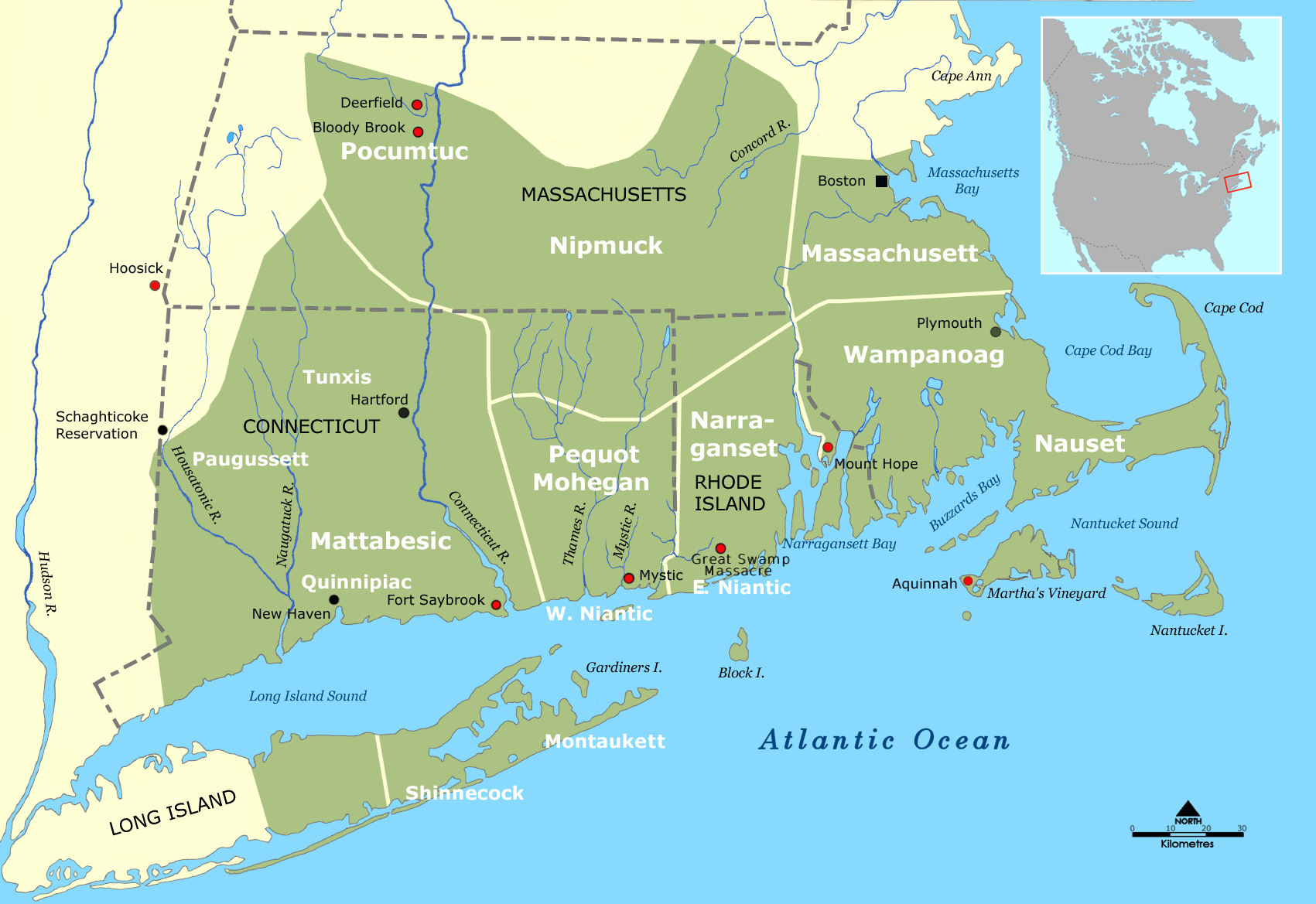 The geographical area of North America in which Wampanoag was once spoken
The geographical area of North America in which Wampanoag was once spokenA few weeks ago, I promised you a story about a language that rose from the dead. Well, our linguistic Lazarus is in fact the indigenous American tongue of Wampanoag, also known by such other names as Wôpanâak and “Massachusett language”. And yes, there’s a clue in the latter moniker – it was once the native language of a sizeable portion of modern-day Massachusetts (as well as all of Rhode Island, practically all of Connecticut and half of Long Island).
Wampanoag was once a great and widespread language – in fact it gave English its words “squash” and “skunk”, and was the language in which the first American Bible translation appeared in 1663 (under the snappy title of Mamusse Wunneetupanatamwe Up-Biblum God, fact fans), but went into sharp decline in the 17th century as a result of disease, war and enslavement before finally dying out in the mid-1800s.
Wampanoag might well have stayed dead, too, if it wasn’t for the determination of one remarkable woman – linguist Jessie Little Doe Baird. Despite being born at least a century after the last native speaker died, she was prompted (allegedly as a result of receiving visions of her dead ancestors) to found the Wôpanâak Language Reclamation Project in 1993. The language’s oral resurrection was made possible thanks to its evident similarities with other (still exant) languages from the Algonquin family, and – of course – the written form of the language has survived through just such historical records as the aforementioned Wampanoag Bible.
As of 2015, there are no more than a few dozen competent speakers of Wampanoag, but the number is growing – thanks to a thriving community of enthusiasts and a programme of language classes. And in a world in which it’s estimated that one human language dies every two weeks on average, it’s wonderful to see a reversal of an otherwise depressing trend.

